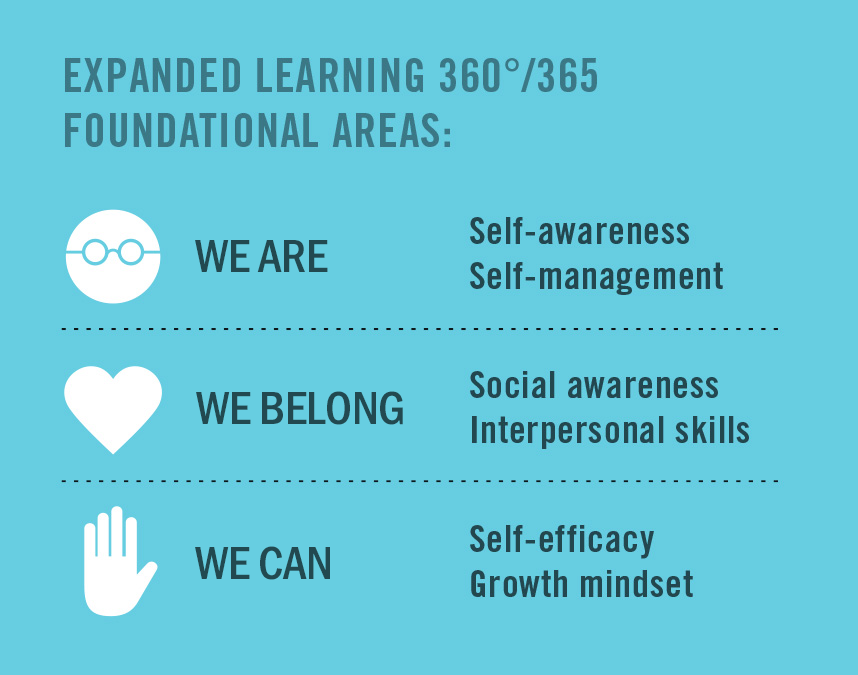All children need social-emotional and character skills to thrive in school, work and life. Social-Emotional Learning and Character Development: The Expanded Learning 360º/365 Training and Professional Development program provides participants with foundational knowledge of social-emotional learning. Out-of-school time programs play an important role in helping young people develop confidence, problem-solving skills, self-management, and interpersonal skills. In this program, practitioners learn how to help young people build a solid foundation of character, which imparts valuable social skills for success in school, work and life.
Program Components
On-site and eLearning Modules
We revised 30 of our most popular on-site training modules to incorporate social-emotional learning, character building and Quality Standards for Expanded Learning in California. In addition to revising our existing training modules, we created nine modules focused specifically on providing participants with the foundational knowledge on the important role out-of-school time and expanded learning programs play in helping young people develop social-emotional and character skills, as well as equipping those in leadership positions to create environments for adult staff to thrive as they support youth in social-emotional learning and character development.
Professional Learning Community
Invest in a Professional Learning Community (PLC) focused on the nine social-emotional learning and character development modules gives participants an opportunity to dig deeper into the social-emotional learning and character development concepts and content. Participants share their experiences and apply learning in between the scheduled training sessions. There are two PLC tracks available for both frontline and site coordinator level staff.
“Staff are checking in with kids to see how they are feeling and setting tone for instruction, which had not happened before. This helped with behavior management. Kids are being listened to and feel like they are seen. Staff now have different lens and more sensitivity to their approach.”



